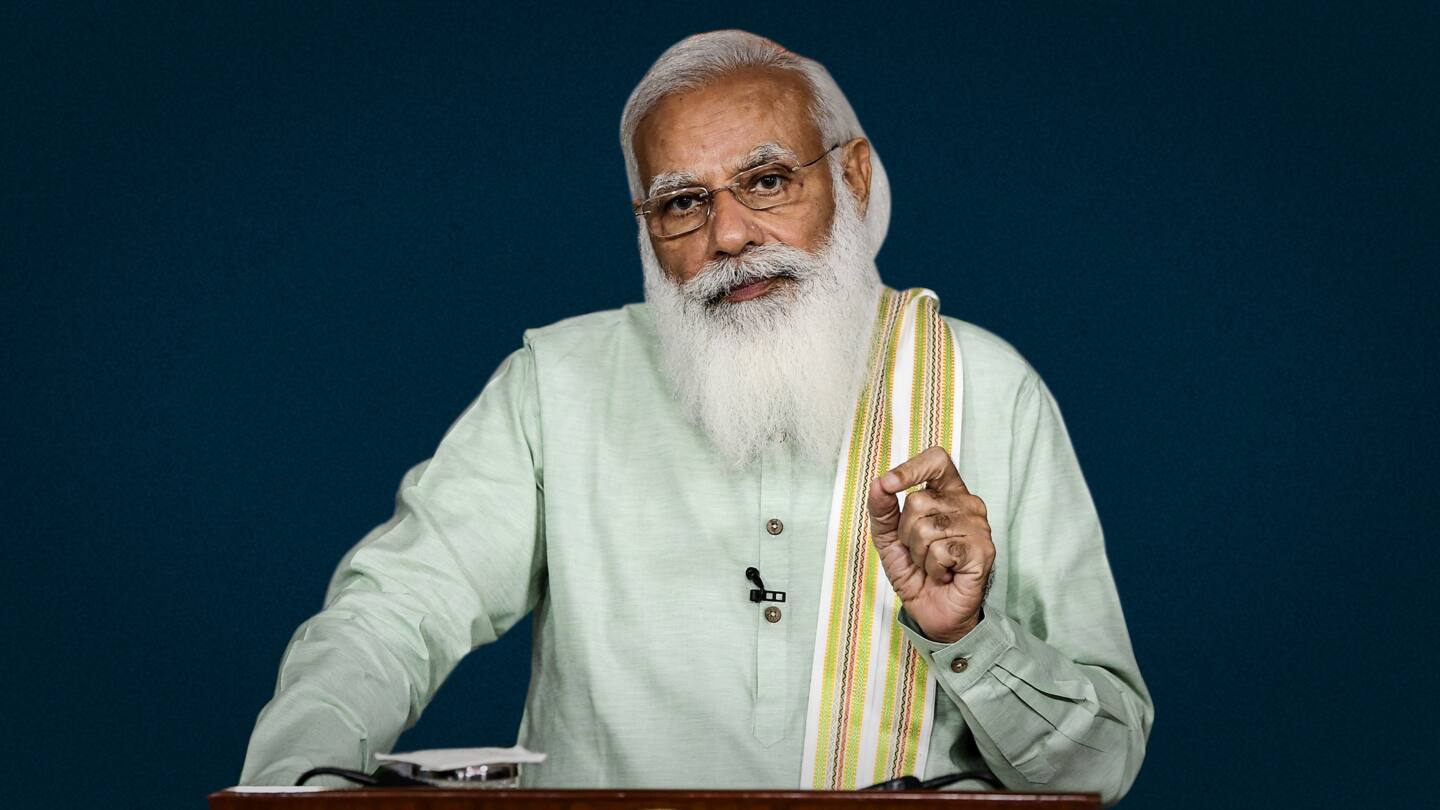
Cryptocurrency in wrong hands can spoil youth, says PM Modi
What's the story
Prime Minister Narendra Modi on Thursday urged all democratic nations to work together in ensuring that cryptocurrency "does not end up in the wrong hands."
His comment came during a virtual address at the Sydney Dialogue hosted by Australia.
India has yet to regulate cryptocurrency—virtual coins that are designed to work as a medium of exchange.
Context
Why does it matter?
This marked PM Modi's first public comment on cryptocurrency regulation.
It also came days after he held discussions on the virtual currency's use in the country.
During that meet, concerns were raised about unregulated cryptocurrency markets and their connection with money laundering and terror financing.
Notably, India had banned crypto transactions in 2018 but the Supreme Court struck down that restriction last year.
Quote
Modi warns democracies on crypto
"Take cryptocurrency or Bitcoin, for example. It is important that all democratic nations work together on this and ensure it does not end up in wrong hands, which can spoil our youth," PM Modi said.
Details
India's crypto regulatory framework in the offing
The Indian government is currently considering a regulatory framework to manage and oversee cryptocurrency investments.
In fact, it will likely introduce a bill on the issue during the upcoming Winter Session of the Parliament.
The government could ban the use of cryptocurrency for making payments but allow it to be held as assets such as gold, shares, and bonds, The Economic Times reported.
Forum
What else did PM Modi say?
The Sydney Dialogue is a forum on emerging cyber technologies being held between November 17 and 19.
It is an initiative of the Australian Strategic Policy Institute.
At the forum, Modi also said that the digital age is changing everything from politics to security.
However, he underlined that it also poses fresh risks and new forms of conflict.
Quote
'Digital age changing everything'
"The digital age is changing everything around us. It has redefined politics, economy, and society. It is raising new questions on sovereignty, governance, ethics, law, rights, and security. It is reshaping international competition, power, and leadership," Modi said.